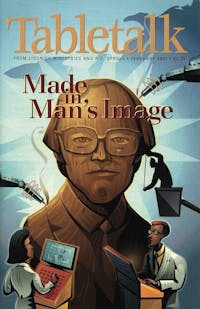
Request your free, three-month trial to Tabletalk magazine. You’ll receive the print issue monthly and gain immediate digital access to decades of archives. This trial is risk-free. No credit card required.
Try Tabletalk NowAlready receive Tabletalk magazine every month?
Verify your email address to gain unlimited access.
One of the advantages that the major proponents of open theism claim for their view is that it is more pastoral than the historic Christian view of God’s sovereignty and foreknowledge.
The vintage example of this is the now-well-known “Suzanne story” in Gregory Boyd’s God of the Possible. He tells of a godly young woman who had longed to marry a missionary, and serve the Lord and rear a missions-minded family with him on the mission field. She had prayed earnestly to that end. Then she met a young man who shared her dream. After receiving the encouragement and blessing of parents, pastor, and friends, they married. But during their time in missionary training school, Suzanne discovered that her husband was having an affair. Though he initially repented, he returned to his adultery. They went to counseling together for years, but he continued his ways, lost all signs of spirituality, became physically abusive, filed for divorce, and left her—after which she discovered that she was pregnant.
In the torment of this personal tragedy, Suzanne heard various words of consolation from friends. Some suggested that all this had happened because she had not really followed God’s will. Others dared to suggest that the situation was indeed God’s will and that He had a plan to use it for her good. Boyd refers to these latter folk as “Job’s friends.”
Then she came into the orbit of Greg Boyd. What was the more comforting, alternative interpretation that the open theist gave her? Here it is. God didn’t know that all this would happen and regretted the situation as much as she did. He thought the marriage would be a good fit for them, and probably had worked to influence them to come together in the first place. Then, when things went bad, God had tried to influence her husband to be restored, but it didn’t work. Enter Plan B.
I’m not making this up. This is a faithful summarization of Boyd’s counsel. But no matter how compelling this may be to some, there are at least three problems with this “comforting counsel.”
First, it is not Biblical. The god of which Boyd speaks isn’t remotely the God of the Bible. I dare you to find a witness to such an exchange anywhere in Scripture. The most obvious places to look would be in the tragedy-laden stories of Joseph, Job, Habakkuk, Daniel, Jesus, or John. If there were a Biblical example of God explaining to His dear children in time of crisis that He didn’t know about or have anything to do with it, because there are some things He can’t know because they exist in an as-yet-non-existent future, one of these stories would be it. Yet in none of these accounts will you find any Biblical figure taking comfort in God’s ignorance.
Second, it is worldly, rationalistic, and man-centered. It places our opinions above Scripture’s teaching. It says, in effect, “I am wiser and more loving than God, because had I been in charge I would not have done it this way.” It views our personal traumas as more important than God’s grand and glorious plan. There are some professing believers who become angry with God when they experience tragedy. They question God’s justice and love. In an attempt to retain their belief in God in the midst of existential struggle, they alter their conception of God to make Him safer or to alleviate Him of the blame that they themselves have attached to Him. Pastors see these kinds of attitudes and responses all the time, but they generally try to restrain them, knowing that they are patently un-Biblical. Open theists, in contrast, actually seek to validate these reactions and to provide a plausible, if strained, Biblical basis for them. The rationalism and man-centeredness of open theism is manifested in this pastoral insensitivity to grand Biblical themes of God’s providence over all and God’s purposes in trial.
When tragedy strikes, so the typical modern American thinks, God is on the hook. He must justify Himself. He must explain and vindicate Himself. How could He have foreseen this and not stopped it? How can I trust a God who wounds me? Open theism to the rescue: “God was just as surprised as you. He’ll do His best to help you out, and He’s got a Plan B that’s just great.” But these answers aren’t robustly Biblical, prophetic, and counter-cultural. They turn out to be quintessentially American, politically correct and culturally-derived.
Third, it is not comforting. The whole program of open theism is dependent upon the proposition that a god who has to deal with the same risks, uncertainties, and possibilities as do we is somehow more sympathetic, accessible, and credible than the old-fashioned omnipotent and omniscient God. That’s the kind of god people want today. But it does not comfort me at all to think that God doesn’t know what’s coming around my corner. The very reason I am able to cope with uncertainty is the knowledge that He is not uncertain. His exhaustive divine foreknowledge and compassionate comprehensive providence form my charter of freedom. “My only comfort in life and death is that I am not my own, but belong … to my faithful Savior Jesus Christ [who] preserves me in such a way that without the will of my heavenly Father not a hair can fall from my head; indeed, all things must work together for my salvation” (The Heidelberg Catechism, Question 1). Now that’s comforting. And it is also historic, orthodox Christian belief. The God who is turns out to be better than the god we wanted, and is precisely the God we need.
